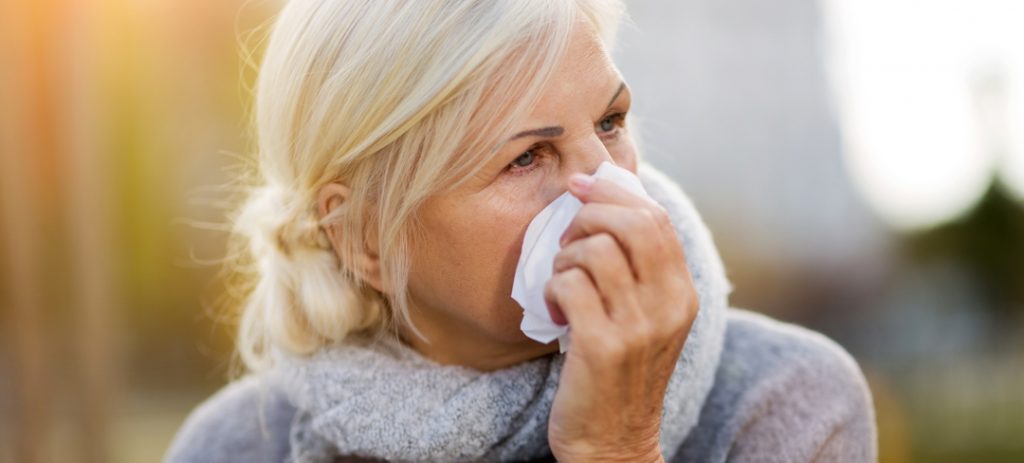
Many people recover from a bout with the flu in about a week with no complications.
But for those over the age of 65, there’s a higher risk of complication due to the natural weakening of the immune system.
According to the CDC, up to 85 percent of seasonal flu-related deaths occur in people age 65 and older, and about 70 percent of flu-related hospitalizations occur in the same age group.
If you’re an older adult or are caring for one, here’s what you need to know about symptoms, complications and prevention of the flu.
Symptoms
The flu and common cold share some common symptoms such as a runny nose, congestion, a sore throat and cough. However, cold symptoms are usually milder and come on gradually, whereas flu symptoms start more abruptly.
If you have the flu, additional symptoms may include fever, body aches, chills, fatigue, weakness, chest discomfort and headache.
Anyone over the age of 65 experiencing these flu symptoms should see a doctor right away to reduce the risk of complications. A doctor can prescribe antiviral treatment and they work best within 48 hours after symptoms start.
Complications
 Bronchitis occurs when inflammation develops in the lining of the bronchial tubes and can lead to pneumonia, an infection that causes inflammation in the air sacs in one or both lungs.
Bronchitis occurs when inflammation develops in the lining of the bronchial tubes and can lead to pneumonia, an infection that causes inflammation in the air sacs in one or both lungs.
Serious flu complications can include bronchitis and pneumonia.
Symptoms of bronchitis can include coughing up yellow, gray or green mucus, fatigue, shortness of breath, fever and chest pains.
Severe symptoms should not be ignored. See a doctor immediately if you experience shortness of breath, chest pain, dizziness, vomiting or mental confusion.
“When it comes to the flu, prevention is key, especially for older adults and those with chronic illness” said Kathleen Kellogg, a doctor of internal medicine at TMCOne. “The best way to do that is to get a flu vaccine each year, which can reduce the risk of flu by 40-60 percent.”
Prevention
Other ways to protect yourself are:
· Wash your hands often
· Avoid close contact with people who are sick
· Stay home when you are sick
· Cover your mouth and nose when coughing or sneezing
· Don’t touch your face, mouth or nose with your hands
· Disinfect surfaces such as light switches, door knobs, telephones and toys regularly